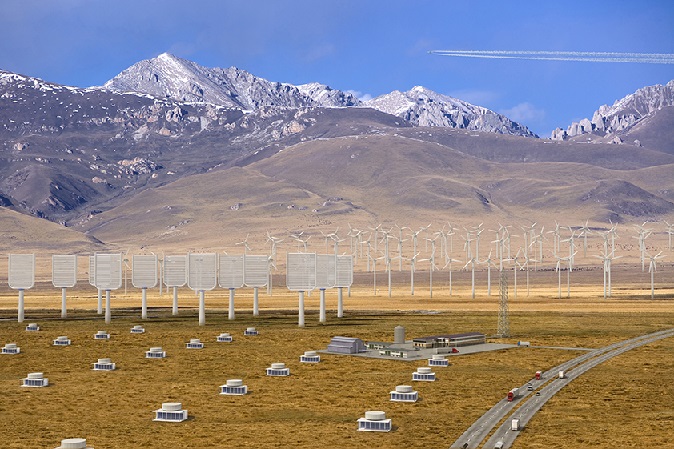Physics seeks to answer the question "Why?" - to describe all the things we see, as well as their motion, behaviour and interactions. The science covers the entire history and future of the universe, and all objects from the fundamental matter we’re made from to the structure of galaxies.
Physicists look for patterns by making observations of the natural world, and models are developed to describe and predict them. Instruments, observations and experiments are then used to test and refine these models. Physicists sometimes aim to describe new things, and other times to improve the accuracy of an existing model. Based on the approach taken, each branch of physics can be divided into two aspects: theoretical and experimental. A key goal is often to combine several models into one - the ultimate goal of physicists in this respect is to complete "the theory of everything", though some believe this to be impossible.
While Theoretical physicists use mathematics to first describe the observed behaviour and then to explain it, experimental physicists perform experiments to test their hypotheses. Scientists believe that no hypothesis can ever be proven, so experiments are instead designed to disprove one - and "failing" to disprove it strengthens our confidence in it. Once a hypothesis is supported by several different tests and becomes accepted, it gets called a "theory" - but experimental physicists will continue to try to find problems with it, so that the theorists can further improve their models.
We've published 23 articles and 37 specialist blog posts about physics so far, featuring 235 unanswered physics questions! But we're not done yet as we still have another 239 physics research areas in our database to write about, so come back soon!
Recent Physics News
Get customised news updates on your homepage by subscribing to articles
Our latest physics articles
Login or register to get customised updates
Our latest physics blog posts
Our blog posts focus on a specialist topic.
Many are written by scientists about their ongoing research, others by the TWDK team.






Delve deeper into Physics
Can't find what you're looking for? Browse the branches of physics that interest you most.
 Astronomy is one of the oldest subjects of study. It seeks to understand everything outside of our world and explain how it got there.
Astronomy is one of the oldest subjects of study. It seeks to understand everything outside of our world and explain how it got there.
 Atomic Physics is all about the interactions between matter (the stuff everything is made from) and more matter, or between matter and light.
Atomic Physics is all about the interactions between matter (the stuff everything is made from) and more matter, or between matter and light.
 Biophysics uses the principles of physics to study life at every level, from atoms and molecules, to cells, organisms and environments.
Biophysics uses the principles of physics to study life at every level, from atoms and molecules, to cells, organisms and environments.
 Chemical Physics is the study of chemical processes in terms of the atoms and particles that make up a system.
Chemical Physics is the study of chemical processes in terms of the atoms and particles that make up a system.
 Classical Physics deals with the physics of everyday things - from ice cubes to bicycles, or cups of tea. Things we take for granted, but often don't really understand.
Classical Physics deals with the physics of everyday things - from ice cubes to bicycles, or cups of tea. Things we take for granted, but often don't really understand.
 Electromagnetism is the study of one of the four fundamental forces in nature - the electromagnetic force, which mediates interactions between charged particles.
Electromagnetism is the study of one of the four fundamental forces in nature - the electromagnetic force, which mediates interactions between charged particles.
 Geophysics refers to the study of the physics of the Earth and its environment in space, including its gravitational and magnetic fields, and its atmosphere.
Geophysics refers to the study of the physics of the Earth and its environment in space, including its gravitational and magnetic fields, and its atmosphere.
 Materials Science deals with the structure and properties of materials.
Materials Science deals with the structure and properties of materials.
 Medical Physics ranges from enhancing diagnostic imagery to developing new techniques and equipment with which to treat patients.
Medical Physics ranges from enhancing diagnostic imagery to developing new techniques and equipment with which to treat patients.
 Particle Physics is the study of the smallest things in the universe and the forces that govern their behaviour.
Particle Physics is the study of the smallest things in the universe and the forces that govern their behaviour.
Or try our advanced search.

















